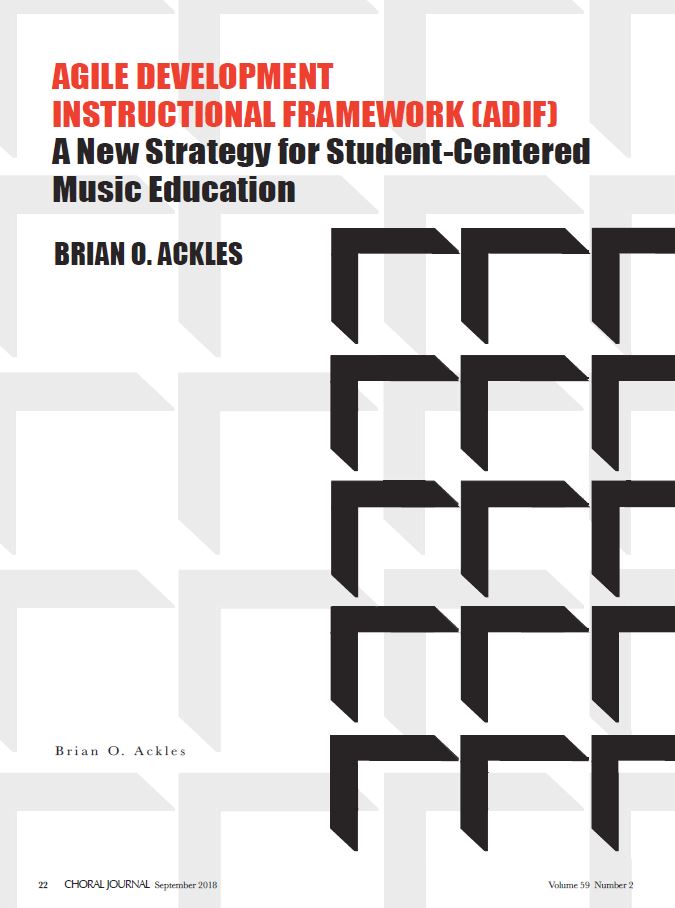The September 2018 issue of Choral Journal contains a feature article titled “Agile Development Instructional Framework (ADIF): A New Strategy for Student-Centered Music Education” by Brian O. Ackles. Below is an excerpt of the article, and you can read it in its entirety in the September 2018 issue! Go to acda.org/choraljournal and click “Search Archives.”
Choose September 2018 from the dropdown menu.
* * *
Throughout the United States, there are many dedicated music educators directing high-quality music programs with outstanding student achievement and performances. The music instruction is rigorous, held to the highest standards, and promotes musical excellence.
Despite the past success of music education, current national and state educational initiatives are moving the teaching profession away from the teacher-directed presentation of concepts and skills toward a more active student-centered learning experience. Educators are being confronted by new multi-subject educational standards such as the Common Core State Standards and the National Coalition for Core Arts Standards. These standards and initiatives give educators a new criterion for success but not specific teaching strategies and methodologies needed for fruitful implementation.
As part of this new national trend, teacher evaluations are being transformed to incorporate assessing both the teacher and student during a classroom observation. A number of states have adapted the Danielson (2013) rubric, which values intellectually active learning focused on successful student engagement through the creation of a community of learners within the classroom. The National Association of Music Educators (NAfME) Workbook for Building and Evaluating Effective Music Education in the School Ensemble draws extensively from the Danielson Framework.
At the Distinguished level, students are expected to assume responsibility for the success of the lesson by making suggestions and improvements, serving as a resource for each other and monitoring their learning against clearly defined benchmarks. These trends in teacher appraisal systems value a collaborative environment, requiring educators to augment and redefine the director-led model and to respond with new teaching strategies.
The music teaching profession is just now beginning to address these changes and challenges, with the realization that many core educational methodologies and instructional preferences may no longer be adequate. Anton Armstrong has stated, “The paradigm for music education classrooms many of us were trained in thirty years ago, and that we entered during our earliest years as music educators, is not necessarily going to be what teachers face in the next thirty years.”
The new national and state standards and redefined teacher appraisal models create a new challenge for music educators: How do we create learning environments that continue the tradition of excellence while incorporating experiences for active student-centered problem solving, collaboration, and accountability? This article presents an innovative solution by implementation of the Agile Development Instructional Framework (ADIF): a new music education teaching strategy based on an adaptation of software development’s Agile Development Philosophy and the “Scrum” methodology.
Read the rest of this article in the September 2018 issue of Choral Journal!



Leave a Reply
You must be logged in to post a comment.